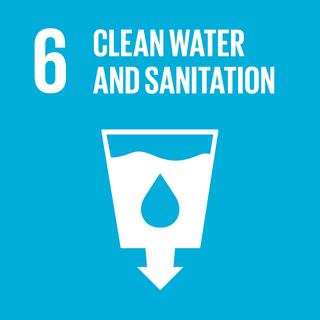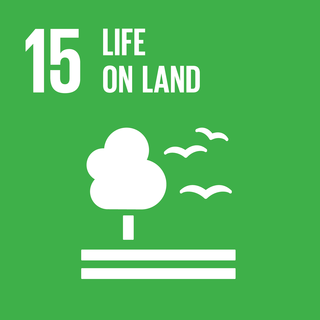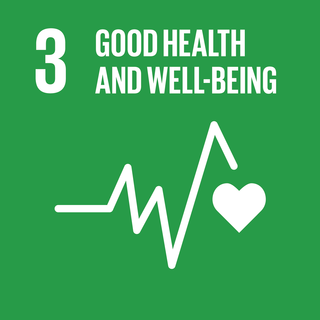
Sanitation refers to public health conditions related to clean drinking water and treatment and disposal of human excreta and sewage. Preventing human contact with feces is part of sanitation, as is hand washing with soap. Sanitation systems aim to protect human health by providing a clean environment that will stop the transmission of disease, especially through the fecal–oral route. For example, diarrhea, a main cause of malnutrition and stunted growth in children, can be reduced through adequate sanitation. There are many other diseases which are easily transmitted in communities that have low levels of sanitation, such as ascariasis, cholera, hepatitis, polio, schistosomiasis, and trachoma, to name just a few.
Danish Committee for Aid to Afghan Refugees (DACAAR)(Danish: Den danske komité for hjælp til afghanske flygtninge) is a non-political, non-governmental, non-profit humanitarian and development organization working to improve the lives of the Afghan people since 1984.

The Sustainable Sanitation Alliance (SuSanA) is a loose network of organizations who are "working along the same lines towards achieving sustainable sanitation". It began its work in 2007, one year before the United Nations International Year of Sanitation in 2008. The intention of creating SuSanA was to have a joint label for the planned activities for 2008 and to align the various organizations for further initiatives.

The following outline is provided as an overview of, and topical guide to, India:
A municipal corporation is a type of local government in India that administers urban areas with a population of more than one million. The growing population and urbanization of various Indian cities highlighted the need for a type of local governing body that could provide services such as healthcare, education, housing and transport by collecting property taxes and administering grants from the state government.

Common Service Centres (CSC) are physical facilities for delivering Government of India e-Services to rural and remote locations where availability of computers and Internet was negligible or mostly absent. They are multiple-services-single-point model for providing facilities for multiple transactions at a single geographical location.
HelpAge India is an Indian organization focused on the concerns of elders. Established in 1978, its mission is “to work for the cause and care of disadvantaged older persons and to improve their quality of life”. HELP AGE advocates for their needs such as, for Universal Pension, quality healthcare, action against Elder Abuse and many more at the national, state and societal level, with the Central and State governments. It runs various Agecare programs to service elder needs. The aim is to serve disadvantaged elders in a holistic manner, enabling them to live active, dignified and healthier lives.

The Sustainable Development Goals (SDGs) or Global Goals are a collection of 17 interlinked global goals designed to be a "blueprint to achieve a better and more sustainable future for all". The SDGs were set up in 2015 by the United Nations General Assembly (UN-GA) and are intended to be achieved by the year 2030. They are included in a UN-GA Resolution called the 2030 Agenda or what is colloquially known as Agenda 2030. The SDGs were developed in the Post-2015 Development Agenda as the future global development framework to succeed the Millennium Development Goals which ended in 2015.
The Water Supply and Sanitation Collaborative Council (WSSCC) was a United Nations-hosted organization contributing to Sustainable Development Goal 6, Target 6.2 on sanitation and hygiene. It was established in 1990 and closed at the end of 2020. WSSCC advocated for improved sanitation and hygiene, with a focus on the needs of women, girls and people in vulnerable situations.
Piramal Foundation is the philanthropic arm of Piramal Group. The foundation undertakes projects under the four broad areas – healthcare, education, livelihood creation and youth empowerment. These projects are rolled out in partnership with various communities, corporate citizens, NGO’s and government bodies.
Adani Foundation is an Indian non-profit organization which was founded in 1996 by Gautam Adani. It is wholly owned by Adani Group. It is considered one of the major corporate-funded foundations operating in India.
Universal Health Coverage Day is celebrated annually on December 12 and is promoted by the World Health Organization.
The 2016–17 Santosh Trophy qualifiers are the qualifiers for the 2016–17 Santosh Trophy. All the teams participating in the qualifiers are divided into five zones based on where they are based and each zone is divided into two groups each.
Smart Village is a concept adopted by national, state and local governments of India, as an initiative focused on holistic rural development, derived from Mahatma Gandhi's vision of Adarsh Gram and Swaraj. Prime Minister Narendra Modi launched Sansad Adarsh Gram Yojana (SAGY) or SAANJHI) on 2 October 2014, Gandhi's birthday, in addition to Smart Cities and Digital India, as a development programme for India. The Parliamentarian's Model Village Scheme main goal is for each Member of Parliament and Minister to adopt a rural village and develop it into a model by 2019 under the SAGY guidelines. The vision of SAGY is a integrated village development plan, encompassing Personal, Human, Social, and Economic dimensions.
The Lives and Livelihoods Fund (LLF) is a $2.5 billion multilateral development initiative created by partners including the Islamic Development Bank (IsDB), the Bill & Melinda Gates Foundation, the Kingdom of Saudi Arabia, the United Arab Emirates, the State of Qatar, and most recently the UK's Foreign, Commonwealth & Development Office. According to Gulf News, the five year fund is the "largest ever Middle-East based, fully-multilateral development initiative". In 2015 The Economist reported on the fund creation for tackling poverty and ill health in the Muslim world, and that the IsDB and BMGF sought to collaborate in the fund with Gulf countries. The fund started its operations in September 2016. Dr. Waleed Addas is the Head of the Lives and Livelihoods Fund, Islamic Development Bank.

Sustainable Development Goal 6 is about "clean water and sanitation for all". It is one of 17 Sustainable Development Goals established by the United Nations General Assembly in 2015, the official wording is: "Ensure availability and sustainable management of water and sanitation for all." The goal has eight targets to be achieved by at least 2030. Progress toward the targets will be measured by using eleven indicators.

Sustainable Development Goal 15 is about "Life on land." One of the 17 Sustainable Development Goals established by the United Nations in 2015, the official wording is: "Protect, restore and promote sustainable use of terrestrial ecosystems, sustainably manage forests, combat desertification, and halt and reverse land degradation and halt biodiversity loss". The Goal has 12 targets to be achieved by 2030. Progress towards targets will be measured by 14 indicators.

Sustainable Development Goal 14 is about "Life below water" and is one of the 17 Sustainable Development Goals established by the United Nations in 2015. The official wording is to "Conserve and sustainably use the oceans, seas and marine resources for sustainable development". The Goal has ten targets to be achieved by 2030. Progress towards each target is being measured with one indicator each.

Sustainable Development Goal 3, regarding "Good Health and Well-being", is one of the 17 Sustainable Development Goals established by the United Nations in 2015. The official wording is: "To ensure healthy lives and promote well-being for all at all ages." The targets of SDG 3 cover and focus on various aspects of healthy life and healthy lifestyle. Progress towards the targets is measured using twenty-one indicators.








